Media | Articles
9 garage consumables you should always have in stock
Sometimes working on our beloved project cars and motorcycles is a more regular occurrence than we wish. These impromptu fixes and repairs that just pop up can be dealt with quickly—provided you have the right supplies on hand.
The list of needed hard parts or spare pieces varies, depending on what you own and the level of DIY-ing you are comfortable engaging in. On the other hand, there are plenty of generic, consumable items that any garage needs. These items can make routine tasks easier, so ensuring they are readily available gives confidence when diving into any project or repair. Here are the nine must-have consumables we think you need in your garage.
Rags/box o’ towels
Spills happen, and there is always some grimy part that needs a good cleaning. While you can use reusable rags, you’re likely to anger your significant other when you grease up the washing machine with them. So instead have a collection of disposable towels, but be sure to contain any oily rags in a metal can with a lid. Not doing so means you could set your garage on fire when you move on to the next project and accidentally throw a spark into the garbage can!
Microfiber cloths
While there are rags for cleaning, let’s not forget the materials designed for delicate surfaces. Think of the times you need to clean glass or wipe down painted surfaces with quick detailer: microfibers are great for this. They even work great for cleaning tools as they are put away at the end of a job. These will also get dirty enough eventually that they need a trip to the washing machine, but be careful about the detergent you use, along with what gets washed with them. These fluffy towels pick up rocks or chips from other garments, so re-using them risks the addition of scratches to whatever finish they next encounter.
Oil and Grease
So many DIY projects involve assembly and disassembly, to the point you might lose some oil while taking something apart. The same happens with grease. Both will need replenishment after assembly, so keep a few bottles of your oil of choice and a tub/tube of grease handy in your garage. For extra points, zip-tie a scrap chunk of hose to the side of the canister: that way you can hold an acid brush to make applying that grease a no-mess affair.
Marketplace
Buy and sell classics with confidence
Razorblades
It’s counterintuitive at times, but being sharp is actually safe. If you need to cut something like a rubber hose, zip tie, or stiff plastic packaging, the safest way is with a blade that isn’t dull. A dull blade moves unpredictably and requires more force to do the job. That’s a recipe for injury, so instead keep a pack of razorblades so you always have a replacement for that dull blade in your knife. Razorblades also make great gasket scrapers (when used carefully) to prevent gouging soft surfaces.
Brake and/or carb cleaner

Once comfortable with a project or task—like a brake job—we tend to jump into the job instead of preparing the shop for the work ahead. So instead keep the needed chemicals on hand, ensuring you don’t put yourself in the frustrating situation of driving (or walking!) to the parts store to finish a project.
Roll-up earplugs
Hearing damage is no joke. Even if you have a favorite pair of over-the-ear muffs to keep your eardrums safe, having disposable foam earplugs is easy. If you have a guest in the shop who needs to hammer that ball joint out for you, they will absolutely appreciate your wish to prevent tinnitus in their earholes. Cheap and safe rarely go together, but in this case, they do. It’s a no-brainer to pick up a case of these for a couple bucks.
Gasket maker
Silicone gasket makers have limits, but when used properly, the tubes of various colored schmoo can be life savers. Having some around never hurts if you are routinely getting into projects that involve sealing two surfaces that may not have aged gracefully. Damage from corrosion or just distortion from age might leave more separation than the gasket can handle. In these cases, having gasket maker on hand to give a quick wipe rather than having to leave the shop to get some is a real timesaver.
Zip ties
I’m not going to wax poetic about how anything can be fixed with zip ties, but they do come in handy for a multitude of tasks. Black zip ties are often more durable to UV light exposure, so that’s the one to stock in your garage. There’s nothing like knowing you can pull a zip tie tight with no fear of it shattering into a sun-brittled mess.
Beverages
This is the one you were here for, right? The literal consumables needed for your body?
Much of the country has reached “the porch is the fridge” levels of chill, so grab a six-pack of whatever you enjoy and set it by the door. Alcoholic drinks and wrenching is a bad combination, but having a cold one while admiring a job well done (or cleaning up the tools) is deserved. Well deserved, actually. So restock early and often in this case.
Check out the Hagerty Media homepage so you don’t miss a single story, or better yet, bookmark it.
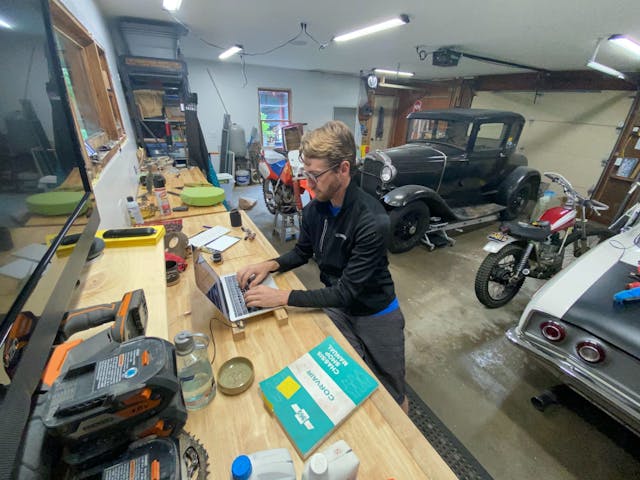
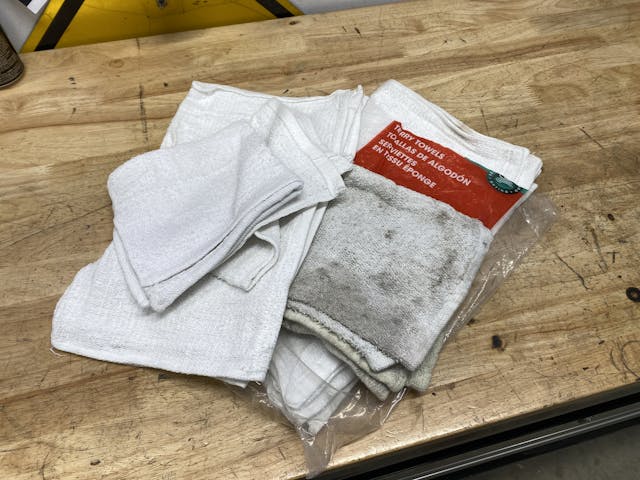
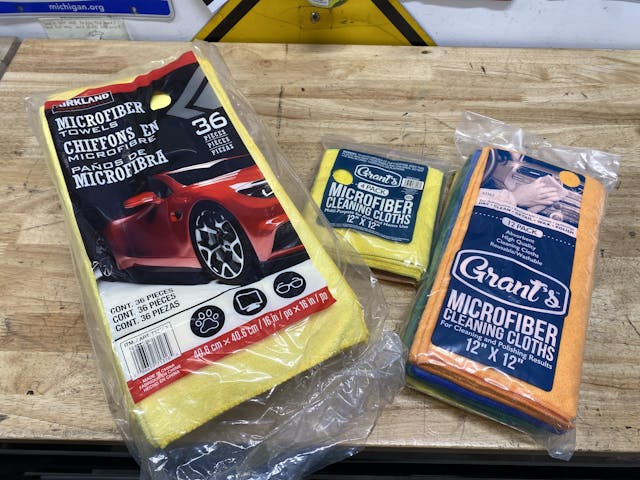
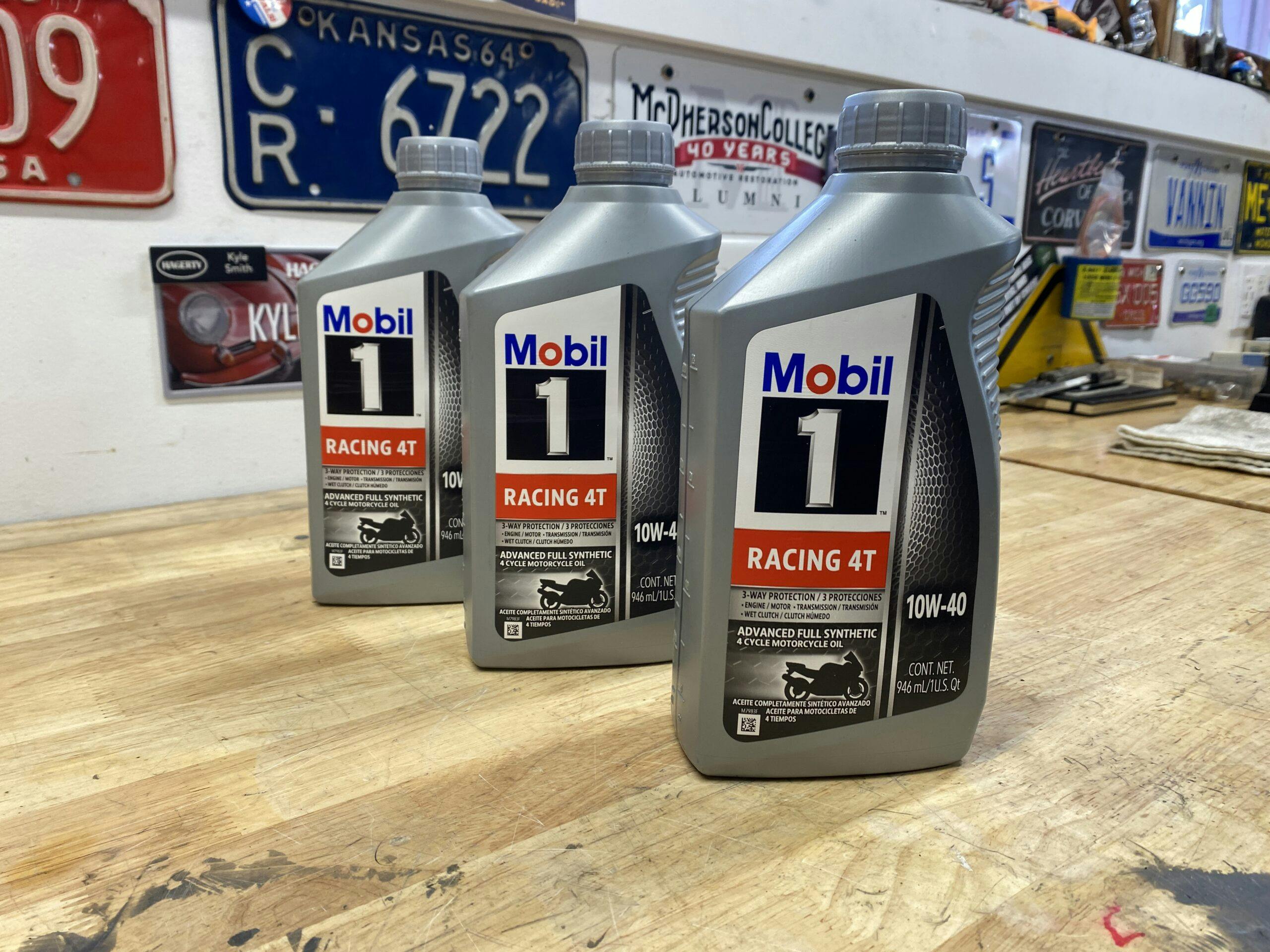
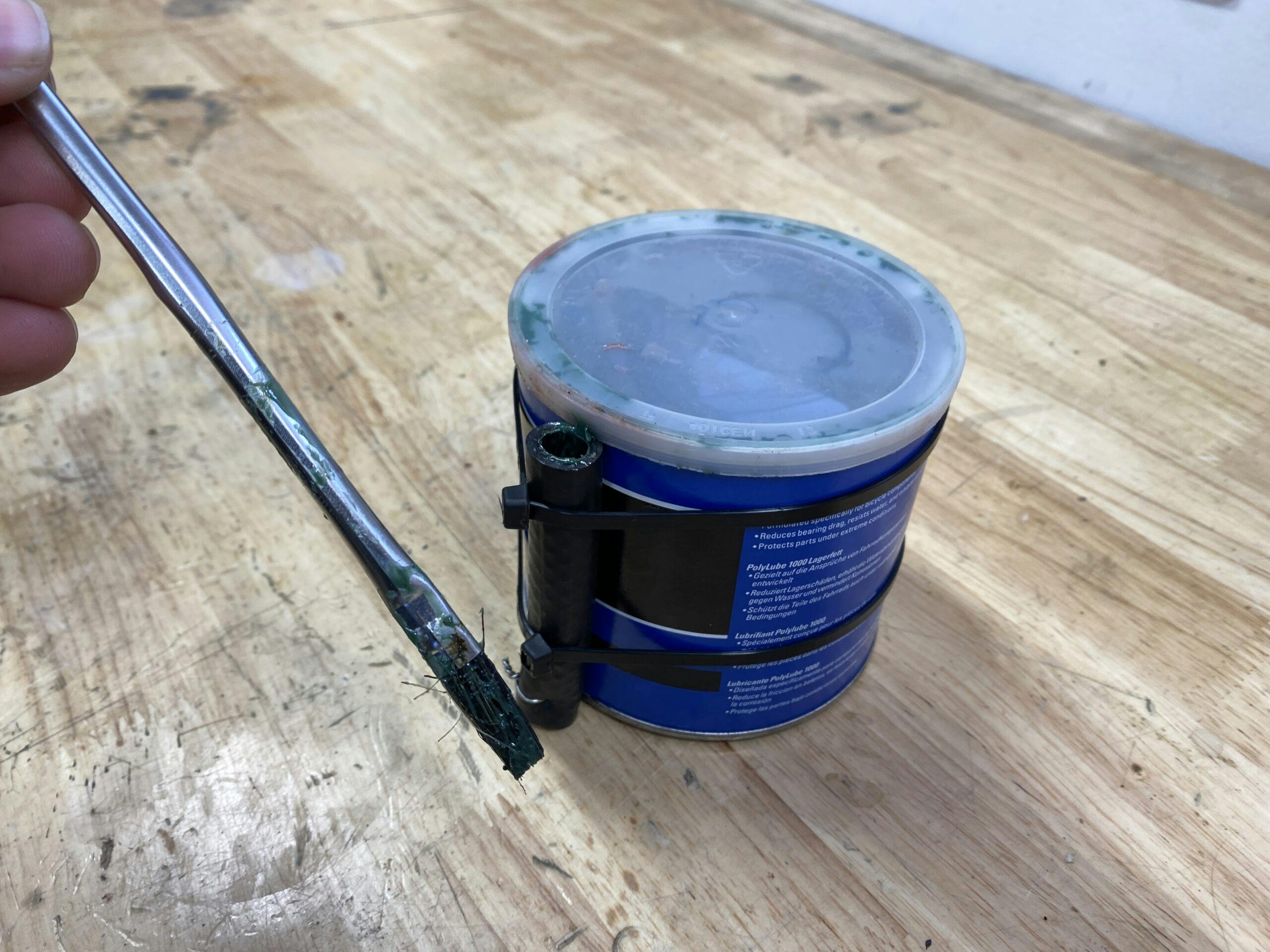
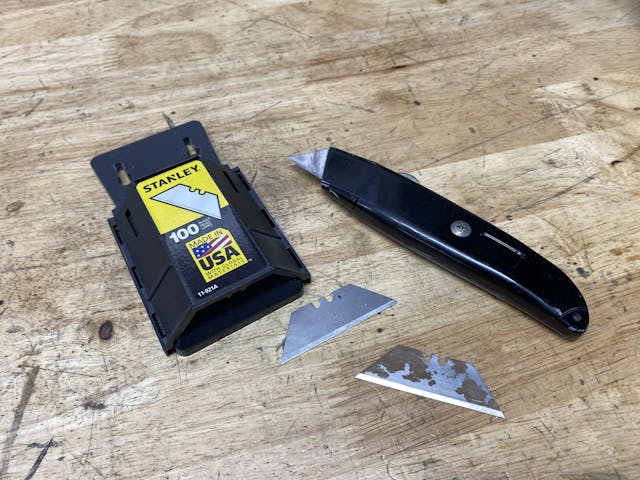
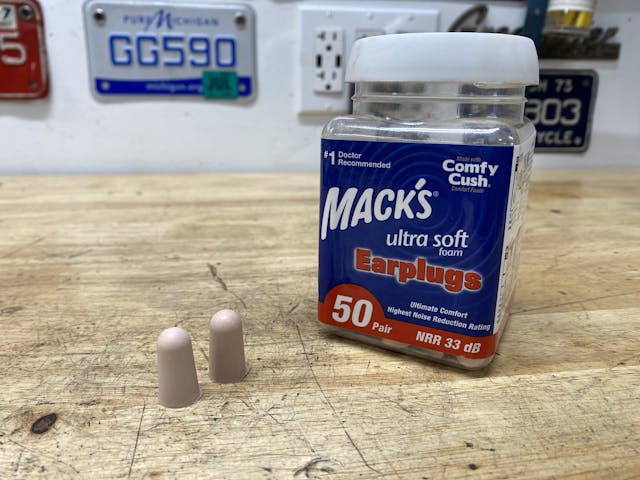

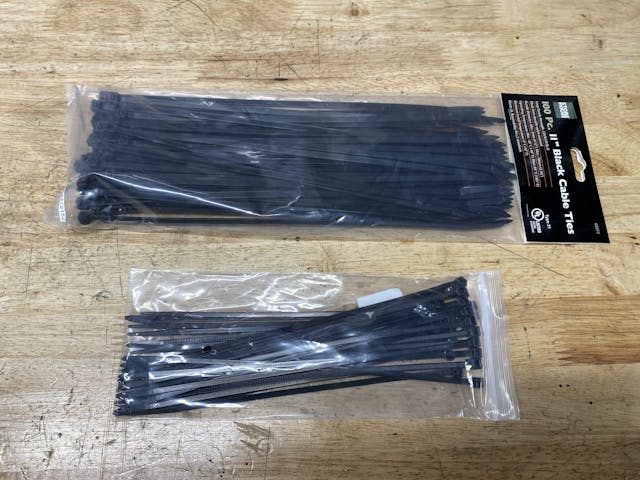
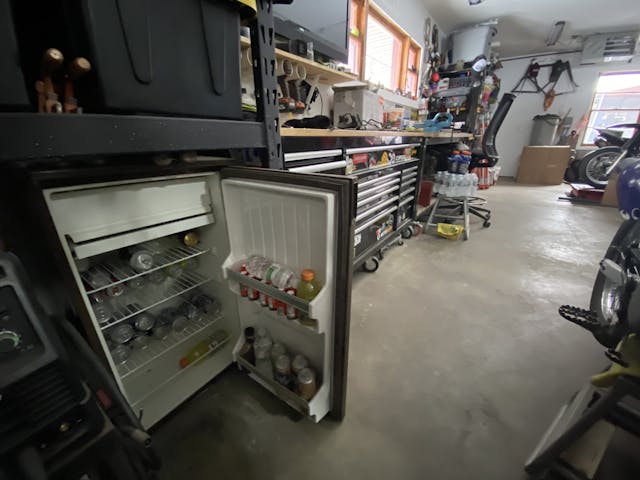












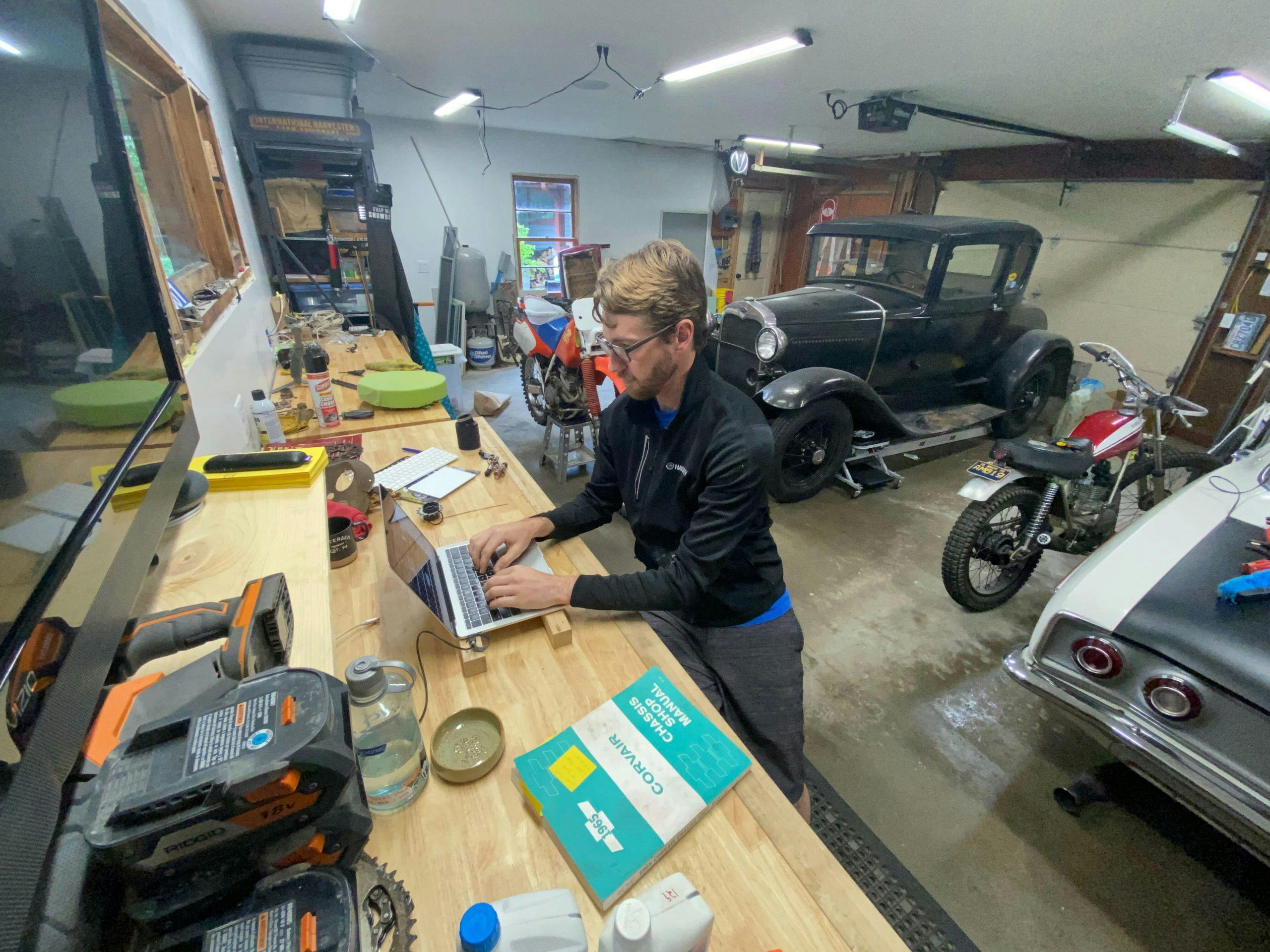
I think this is a pretty good list, but as with all of Kyle’s “9-whatevers-you-need-in-you-shop” lists, I’m sure that there are going to be plenty of additional items suggested (nay, DEMANDED) by my fellow readers. I always look forward to reading what others think should be #10-through-infinity, and often I pick out a gem or two that I decide I need to have. Until the others chime in, however, I’m going to go out into the shop and zip-tie a piece of hose to the side of several grease containers and stick brushes in them. Great idea, thanks, Kyle! 🤗
My #10 would be bandaids then bottled water ( for emergency eye flush) and a cheap headlamp and the list goes on….
Agree Dub6!
Good article, I would add Hand cleaner is a good item to have as well…plus I always keep some in my old car travel kit which I move from car to car…
crimp on butt connectors and lugs. The problem with stocking RTV is half the time the tube ends up hardening up before the next job. I also tend to think that RTV is one of those grossly overused garage items like the electric impact gun
And heat shrink for all electrical jobs. Like zip ties, one of the world’s best inventions.
how can you overuse an electric impact?
Maybe when using one instead of the proper hand tool, or more often, instead of a torque wrench.
Use the proper tool for the job.
Like a stubby 1/2 or 3/8, or a ratchet.
As a purist who feared breaking bolts, I’ve become less worried about drilling out a bolt and retapping. I’m rarely driving it to work the next day. Save my joints and fatigue.
Not being interested in, or knowledgeable about, engine stuff, I had to ask my husband what this stuff is. Really…”butt connectors”? Sure enough, he has these things in his shop!
Once opened and used dig a little silicone out of the spout and replace it with petroleum jelly then replace the cap. This will stop the silicone from hardening in the tube. when you use the tube again squeeze out enough silicone to get all of petroleum jelly out before applying .
Save your cardboard from all those online purchases. I love having a nice “new” piece if I’m going under the ride.
Smaller cardboard pieces are good for patterns when you need to make one
Me too!!
Uhmm, nitrite gloves should be #1 on the list, no ifs, ands or buts.
Lord knows I’ve made plenty of typos, mis-spellings, and downright grammatical blunders in these pages, so I’m not finger-pointing, but I think we want to change the above poster’s recommendation to “nitrile” gloves as, assuming you could even get them, gloves made with “nitrite” might actually be hazardous to your health:
“nitrites in the blood cause changes in hemoglobin, or the molecules that help move oxygen in the body. Nitrates can make it so that less oxygen is available for the body to function properly” – per Wikipedia
😃
Unless those “nitrites” are in a glass of wine or in a grilled hotdog…
Well yeah – but I don’t keep those things as consumables in my shop. Maybe I should, though? 🍷🌭😋
Maybe he meant “nitrous” gloves. As in “oxide” or (nitro)methane, to really “put the power in your hands”.
I agree with all the above. I’d add a few more. WD40, Liquid Wrench (or similar), penetrating oil, propane, butane, wax, spray wax, anti-seize, 3M adhesive, duct tape/electrical tape/masking tape, solder, teflon thread sealer, toilet paper (for cleaning cylinder bores) or whatever, rec fuel.
Great additions Dean, esp. the toilet paper.
Problem during the pandemic in some countries tho, with some supermarkets experiencing shortages and a run on supplies (excuse the pun).
No substitute for West Virginia Chrome / Good Ole Duck Tape for a temporary body part fix.
Right on Dean!
Missed two. Duct Tape the handyman’s secret weapon.
Finally JB Weld. I work with JB Weld like artist work with Pastels. I have fixed my concrete drive way, Toys, Cars. Soap Box Derby racers, The wife’s jewelry and many other things around the home.
I recall it when I was young watching NASCAR teams fix cracked heads and block in a race with JB weld to get the car to the finish. With 1001 uses you should always have a selection of the standard and fast set weld.
Goop also is something that has been very handy and also should be kept on hand.
I agree the JBWeld is a must have. Thanks for the reminder!
Great article and I concur with everything said. I will add that terry cloths (preferable to have 100% cotton) is BEST for APPLYING cleaners/conditioners/waxes and microfiber is BEST for buffing.
Also dum-dum, and various lengths and diameters of vacuum and fuel-line hose.
I have to add snacks and a first aid kit. As a Type 2 Diabetic having to seek out a quick snack to deal with low blood sugar is essential. The wife hates when I come in the house all greasy and dirty in search of a quick snack.
As well having a first aid kit handy is also quite important when you forget the numerous sharp edges and hazards on an antique car.
Yes – a basic 1st aid kit is a must – simple (clean/sterile) gauze, tape, tweezers, peroxide and eye wash. I learned that after too many times using a paper towel wrapped with electrical tape while I head to the house for “proper” supplies. Sorry – rags and zip ties may work, but the right stuff is a bit better.
What about a heated shop with adequate lighting? And a clean, organized bench? And pair of reading glasses for shop use only? Maybe two pair in case you scratch/damage/step on or otherwise ruin the first pair…
If you are looking at your shop, bench and glasses as “consumables”, I fear you may be doing it wrong, ol’ buddy! 😄
Washer fluid and antifreeze plus spare bulbs for common stuff like headlights, tail lights. Though not consumables per-se: extra 10mm, 1/2-9/16 sockets as they are always coming up missing. Extra new battery for your cordless stuff. Invariably, one of the ones you use a lot will end up not taking a charge leaving you with a dead one in your tool and none to swap with.
Q tips. Great for getting into small spaces. When I need to close a paint can, I squish the tip in the vice so it fits in the grove to close the cover on the paint can. I save rattle can spray tips if they’re clean. Every now and then one gets clogged and a quick replacement saves some frustration. Seems you don’t get them like you used to but I save old credit cards. Great for light duty scrapers or spreaders and if you got a bunch, you can always find one that is an exact thickness for a needed shim. Probably use that more for wood working. I keep a bottle of alcohol, not the drinking kind, although that is not bad either. Always useful for a quick no residue clean of some part. I keep old tooth brushes for clean ups as needed. I hve found WD40 penetrating oil to be pretty good. Seems to dissolve rust quickly and I have had good luck with it as cleaner and nut buster.
If you paint in your shop, avoid WD40.
It really is terrible and gets everywhere.
WD40 in a tackle box and for the tool box if you run points in the rain. That’s it.
It is the worst type of crutch fluid when heat, a proper penetrating oil, or chain lube should be used.
For clogged spray tips, I soak them in laqueur thinner in the paint cap. Then a quick blow out with air and good as new.
You must work on newer cars LOL
Liquid Wrench!!